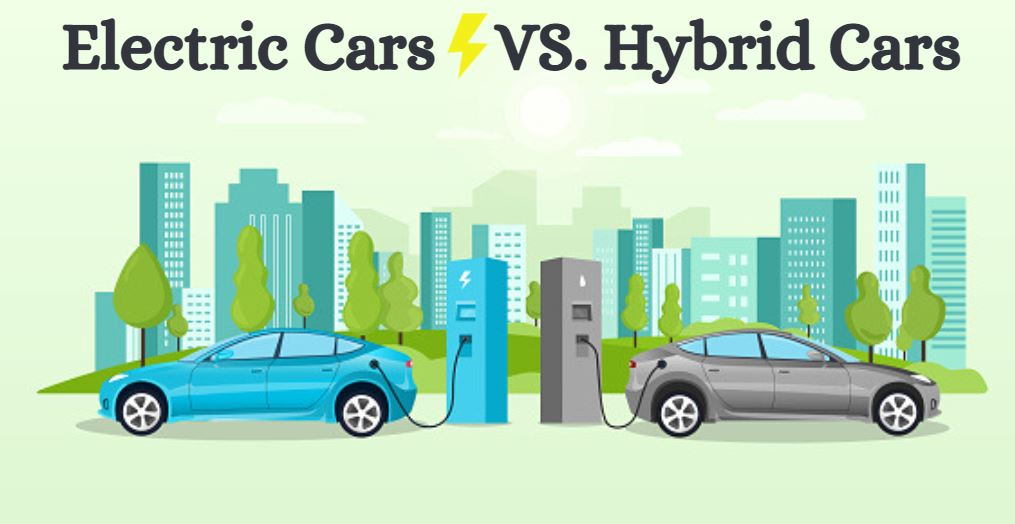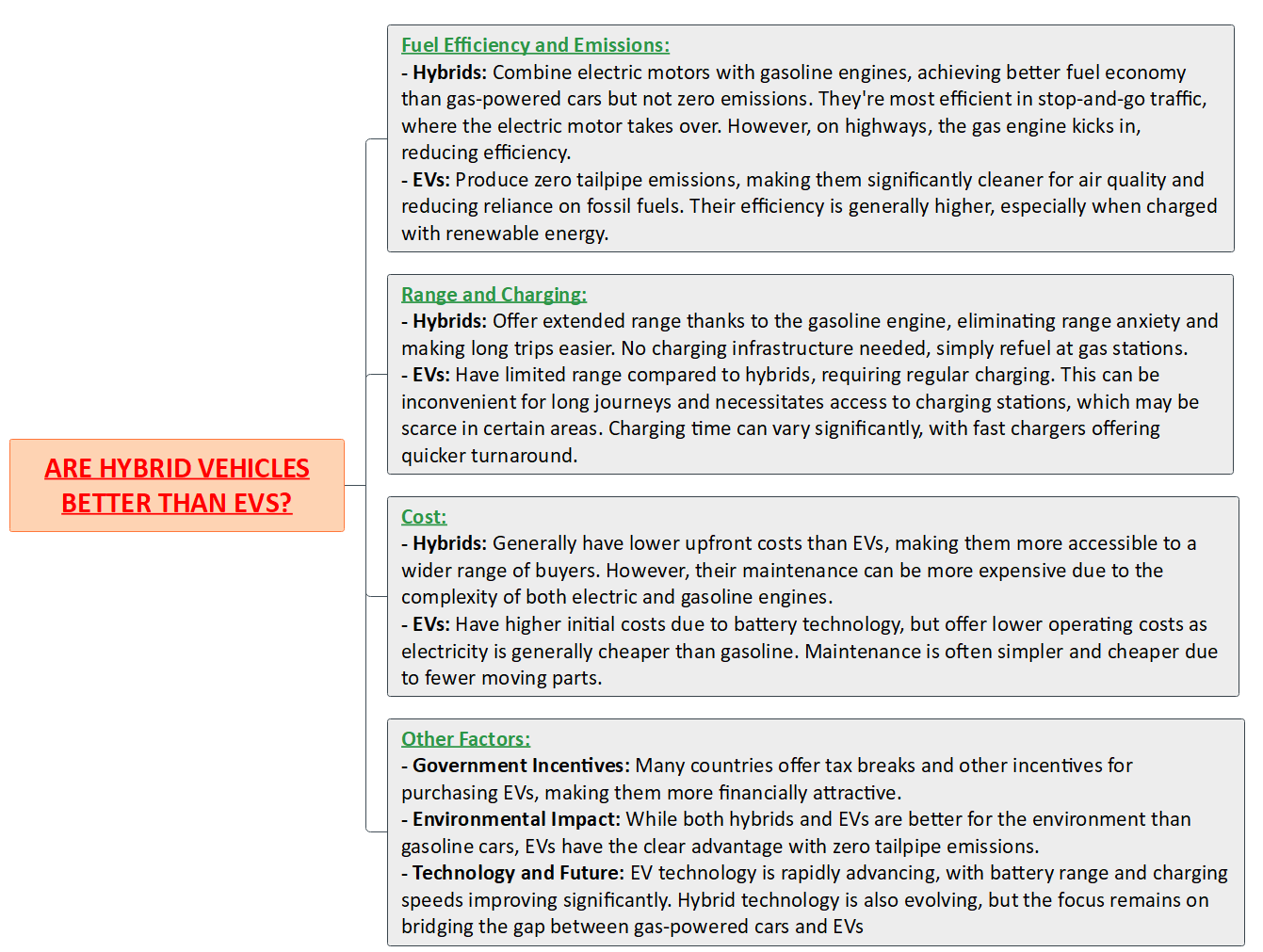Description

Copyright infringement not intended
Picture Courtesy: blog.statiq.in
Context: The HSBC Research suggests that hybrid vehicles could be a cleaner and more practical medium-term solution for India compared to electric vehicles (EVs), at least for the next 5-10 years.
Key Highlights of the research
Lower Carbon Emissions
- The research indicates that currently, the overall carbon emissions from hybrid vehicles are lower than both electric and traditional internal combustion engine (ICE) vehicles for similarly sized vehicles. Specifically, hybrids emit 133 g/km of CO2, while EVs emit 158 g/km.
- This analysis considers total emissions, including vehicle emissions (tank-to-wheel) and emissions from crude mining, refining, and power generation.
Decade-long Advantage for Hybrids
- It suggests that it could take as long as a decade for emissions from EVs and hybrids to converge. During this period, hybrids are considered to be at least 16% less polluting than EVs.
Hybrids as a Practical Medium-Term Solution
- HSBC believes that hybrid and compressed natural gas (CNG) cars are practical medium-term solutions for India over the next 5-10 years as the country moves toward full electrification. The practicality is attributed to both the cost of ownership perspective and India's decarbonization efforts.

Convergence of Emissions
- The research estimates that the emissions from EVs and hybrids could converge after 7-10 years. This convergence is expected to occur if the share of non-fossil power generation in India increases to 44%. Even with a 40% share by 2030, hybrids are projected to emit 8% less CO2 than EVs.
Challenges in EV Adoption
- It highlights challenges in the widespread adoption of EVs, including the need for upfront subsidies, the importance of charging infrastructure, the source of electricity (largely coal-fired in India), and dependence on the global lithium value chain for battery production.

Conclusion
- The research underscores the complexity of the transition to electric mobility in India and suggests that, at least in the short to medium term, a combination of hybrid vehicles and other alternative fuels may offer a more practical and less polluting solution. However, the success of such a strategy would depend on various factors, including policy support, infrastructure development, and technological advancements.
Must Read Articles:
HYBRID EVs: https://www.iasgyan.in/daily-current-affairs/hybrid-evs#:~:text=Hybrid%20EVs%2C%20both%20full%20and,fuel%20economy%20in%20hybrid%20EVs.
Electric Vehicles: https://www.iasgyan.in/blogs/electric-vehicles-22
|
PRACTICE QUESTION
Q. How would the economic and social impacts of increasing EV adoption differ in developed vs. developing countries with varied access to electricity, technology, and infrastructure? Could hybrid technology offer a more equitable transition pathway in some contexts?
|
















